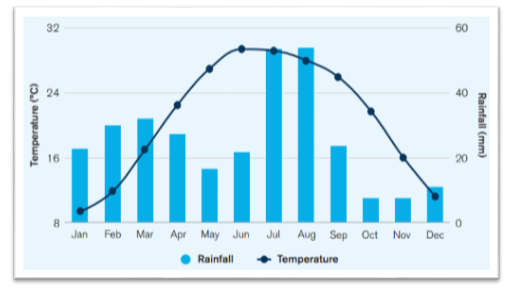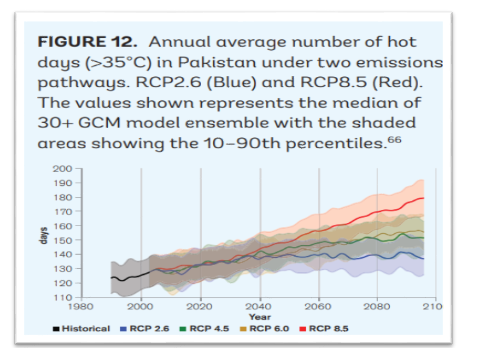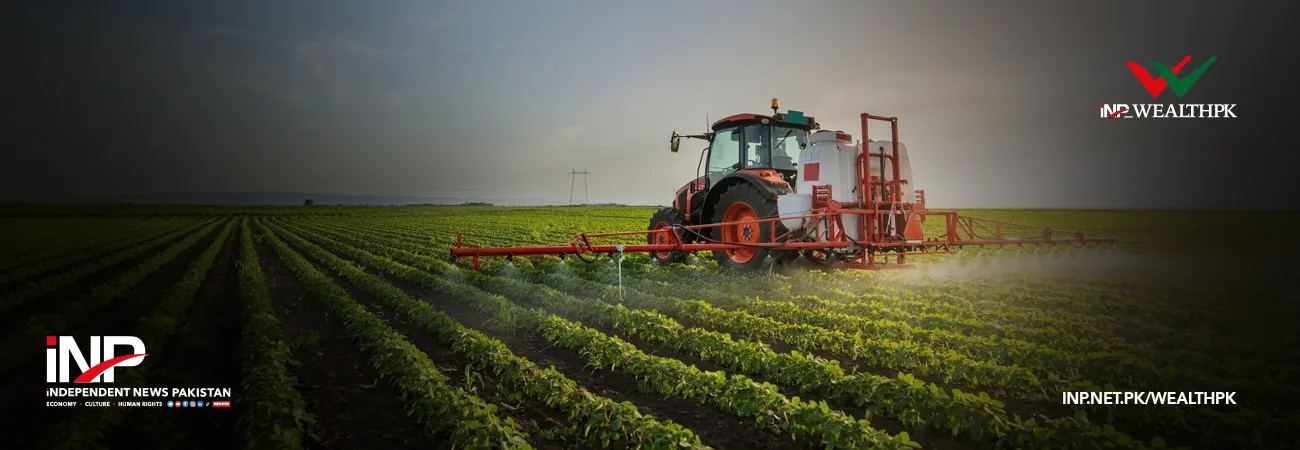INP-WealthPk
Amir Khan
Pakistan’s agriculture sector is the most vulnerable to climate change impact, severely damaging staple crop yields and also affecting the health and productivity of the labour force, warned an environmental specialist working with the Asian Development Bank. Talking to WealthPK, Abdul Hadi, said the growing concerns among experts and policymakers stemmed from the direct effects of climate change, including alterations in carbon dioxide availability and precipitation patterns, as well as rising temperatures, which were significantly affecting food production.

Source: World Bank Report
Moreover, indirect effects have been observed in the form of reduced water resource availability and seasonality, soil erosion, transformations in soil organic matter, shifts in pest and disease profiles, the introduction of invasive species, and loss of arable areas due to coastal submergence and desertification, he said. “International studies predict severe damage to staple crop yields, even if the COP27 environment summit targets are met and warming is limited to 1.5°C. A decline of 5% in global wheat yields and 6% in maize yields is anticipated by researchers. Furthermore, certain crops will experience shifts in their optimal and viable spatial ranges, with the extent and speed of these shifts contingent on the emissions pathway followed,” he explained.
Abdul Hadi stated that apart from the direct impacts on agricultural operations, climate change also affected the health and productivity of the labour force. “Research indicates that labour productivity has already declined by 10% during peak months due to warming, and this figure is projected to reach 20% by 2050 under the highest emissions scenario.” He said the implications of these climate-induced changes on Pakistan's food consumption patterns were profound, affecting both domestic agricultural operations and the global supply chain. “Given that agriculture employs more than 40% of the country's workforce and contributes 22.67% to the GDP, it is evident that the sector's adaptation needs must be addressed as a high priority.” Notably, the five most vital crops in Pakistan, namely wheat, rice, cotton, sugarcane, and maize, are primarily cultivated by subsistence farmers.
Furthermore, a significant portion of the nation's agricultural land has already degraded, making it more susceptible to climate impacts. The ADB environmental specialist pointed out that the majority of agricultural production relied on irrigation, with around 80% of Pakistan's agricultural area being irrigated. “This raises concerns about the potential damage to crucial cash crops like cotton. Pakistan, as the fifth-largest global producer of cotton, faces additional challenges as the industry contributes 10% to the country's GDP and employs about 40% of farmers, a substantial number of whom are rural women.” He added that extensive studies have shown that Pakistan's crops are highly sensitive to changes in temperature and water availability. He said a rise in temperatures between 0.5°C-2°C was projected to cause an 8%-10% loss in crop yields. He continued that crops were particularly vulnerable to extreme heat, with days exceeding 35°C expected to become more

frequent. “Yield declines are widespread, especially for crops like cotton, wheat, sugarcane, maize, and rice, except in the northern mountainous region.”
Source: World Bank Report
Abdul Hadi added that extreme climate events, such as floods and droughts, posed significant threats to Pakistan's agricultural sector. “Floods can inundate fertile land, destroy crops, and kill livestock, while droughts lead to a loss of rural livelihoods and necessitate emergency relief efforts to provide food and water to affected communities”. He concluded with the observation that urgent and extensive research was essential to comprehend future water resource trends and mitigate the potential consequences of climate change on Pakistan's economy. He said immediate and coordinated efforts from both national and international stakeholders are necessary to safeguard the livelihoods of millions of people and ensure food security in the region.
Credit: INP-WealthPk













